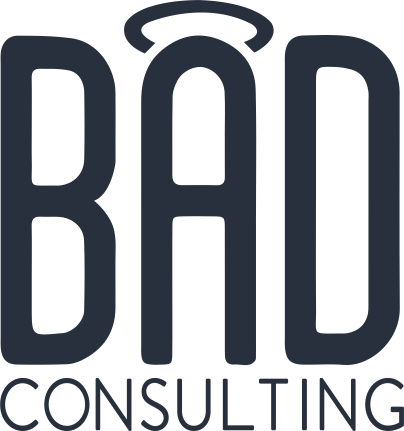“I can’t get people to talk.” When someone says that, my spidey senses perk up and I have to stop myself from screaming, “I SPECIALIZE IN COMMUNITY MANAGEMENT.”
I wouldn’t say it’s my favorite part of social media. I love the content and connections part of it. But my God, I’m really good at community management without even trying. I think it’s because I live up to that Italian stereotype in many ways: I want to connect all the people and then enjoy watching them make magic happen.
But with community management, there also comes moderation. To be a moderator of a community can be a hard task, especially when you are faced with people who want to be negative just to be negative. You have to be careful with your language and not let your real emotions fly through your fingers as you type your response. It’s… tiring.
It can also be super motivating as you watch your moderation make a community thrive and succeed. So you take the good with the bad.
Here are some moderation tactics that might help you as you manage your community:
How to start moderating
Some moderators turn up to a group or a page all ready thinking they just wait to start the moderating. It’s wrong on so many levels.
While some communities are super comfortable and will talk a ton, most will not. Most people are super skeptical now and don’t want to necessarily talk in the open. This is a lot of the reason why one-to-on communication channels are on the rise.
To combat this, you need to get people talking. You need to post irresistible questions that really get to the heart of what your community cares about. You have to bleed a little bit and share a little more of yourself than you’re necessarily comfortable with. And you have to demonstrate. You have to show that you truly do care for the person who is sharing, and if you use their story in any way, you have to show the care and respect you have for the fact that someone shared. This will build trust and will be important as the community matures and needs change.
Clear community guidelines
When you have to make a moderation decision, it’s best to have clear guidelines to point to rather than some vague idea. That way if someone complains, you can just say that those are the rules they agreed to by becoming a part of your community. It makes so many things black and white, which can stop arguments.
Facebook Groups does a great job of getting you started with these guidelines, and I love how so many groups are asking you a question that refers to those rules (many times, it’s a rule that is most often broken). This helps for those future arguments in so many ways.
You should bring this idea over to your other accounts as well. No, you can’t guarantee your fans will read these rules and you can’t do anything to make sure they understand those rules. But at least they are there to point to. You’ll find that very helpful when certain disagreements pop up.
Blocking versus hiding versus leaving it alone
I think this is a place where a lot of community managers get lost. They think every negative comment deserves some kind of action. The truth is that if we put as much energy into the positive comments, our fans and potential fans are more likely to see those positives instead of the negatives. But I digress.
You have a few choices when a negative comment comes alone: You can block the person, hide the comment or just leave it alone. For clarity’s sake, when I say, “leaving a comment alone,” I simply mean to not block or hide it. If appropriate, you should totally still reply to it. Here’s how I look at these different actions:
- Blocking: For spam bots only
- Hiding: For anyone who is abusive, trying to spread non-factual information or just being a troll
- Leaving a comment alone: For anyone who is just being mean but not abusive, has a valid complaint or just seems to be having an off day
Are you surprised that I put trolls under hiding instead of blocking? The goal of a troll is to get a reaction out of you. Any reaction is a win. Blocking is a reaction and therefore a win. With hiding, they have no idea if you actually did anything because they can still see the comment despite the community being protected from it. The lack of response makes you a low value target and they will move on much faster.
You could choose to hide people being mean, but I don’t think it will help them. As long as they are not being abusive to others, leave it there. Their friends and family can possibly see the comment and that it might be crossing the line. I like to think that someone in their network will give them a gentle nudge. Does it happen in reality? Probably not, but at least I’m not the only person who knows what this person comments online.
Don’t go moderator crazy
So many moderators don’t trust their communities. They put so many restrictions on their groups that it just can’t even begin to be called a true community.
These are just some of the restrictions I have seen that I would never personally do in any group I manage.
Every post requires approval
The reasoning behind this community management restriction is usually spam. That can be addressed by good membership request questions, so it doesn’t make sense to check again. Yes, a spam account will still get through every once in awhile, but communities are very understanding about an occasional spam bot.
I wouldn’t do this because it can really affect the timeliness of responses. I can’t tell you how many times a question will show up on a group and people are responding to it. The person who asked the question is all like, “Yeah, I tried to post this a week ago and it just got approved. I’ve already dealt with this.” That doesn’t make anyone feel good. Timeliness is such an important part of social media. Don’t stand in the way of that.
No links
There is a Facebook group I am a member of that I would immediately quit if it weren’t so important for my family because the community management just boggles my mind. There are so many rules that I can’t keep track and I don’t dare post or comment for fear of breaking one. The rule that is probably the worst is the no links rule. The reasoning is once again spam and they said this is coming directly from Facebook. According to the moderator, if links are allowed, Facebook will deactivate the group.
Obviously, I know this isn’t true. I know where the idea behind the rule came from, but it isn’t worth getting into here. I will say it’s a clear misunderstanding of something I’m sure Facebook did say but saying that wouldn’t get me anywhere with this moderator.
Links are an important exchange of information, and in most cases, it’s pretty clear when the link is spam. The few times I did try to comment in this group, I had to describe how to look up the product I was talking about. That is just not great for me or the person who was looking for this product. Just make it easier and allow the links.
Unclear rules
Another group I belong to has a lengthy amount of rules. In some ways, it’s good because they have foreseen a lot of community management situations and have addressed them. But also… several of the rules make what we can actually post unclear and people love to call out anything they see as rule-breaking.
To the moderator’s credit, they have posted clarified the rules in question more than a few times, but they never have gone back to rewrite the confusing rules. So it keeps coming up again and again. You would think it would get tiring at this point, right? Nope. It just keeps coming up and taking valuable space in the group.
Like I said above, clear rules are fantastic to have whether it’s a group or a page. Have someone else read your rules to make sure they are all clear. If it still comes up that there are questions about your rules, don’t stick to the old wording just because it’s what everyone agreed to when they first joined. Change it immediately to make sure it’s as black and white as possible.
Great moderation is the difference between a community member having a great experience and having them fall out of a community because they can’t take the drama anymore. It’s hard work to be a moderator but the results are so worth it. That’s especially true when you get see members connecting and getting the support they desperately need.
What would you tell a new moderator?

